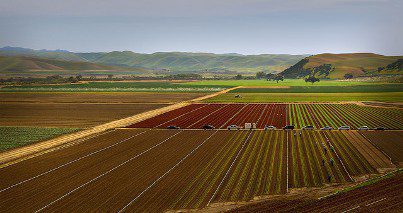A few weeks ago we saw possibly the largest of all listeria recalls of fresh fruits and vegetables. It involved a mind-boggling list of brands and produce types. Normally, such contamination involves a single food or ingredient. Not anymore. But given some thought, this event isn’t surprising. The Big Food system is rife with issues. For once, however, the importing and exporting to and from lots of countries has a benefit.
If it weren’t for a random test made by Canadian health inspectors at the time of import, the listeria contamination in minimally processed vegetable might only have come to light after people had food poisoning. Everyone breathes a sigh of relief when Mann Packing recalls their products just to make sure no one gets sick. Awesome, right?
Which of the dozens of pre-cut vegetable products recalled, actually had Listeria monocytogenes contamination?
That’s not public information. And what better way to keep that secret than simply recalling everything? Or was it all possibly contaminated? Mum’s the word there too. Still, the amount of product recalled would affect profitability. So, unless insurance covers 100% of the loss, it’s pretty safe to assume a high possibility that pathogens came in contact with something in every recalled product.
All of the produce processed by Mann Packing in Salinas, California comes from “family farms,” according to their website. They are a “farm to table” operation.

Big-Food Salad Farm, not farm-to-table
Interesting. I don’t believe there’s ever been listeria contamination news from any local farm to table produce. Also, I have a hard time making the farm to table connection when that family farm works 10,000 acres and ships nationally. How about you? But that’s just one of their growers. With a packing house that moves that volume of greens and vegetables, the number of acres these families farm can only be massive.
Fantastic marketing message; very tuned-in to consumer concerns. But being uncooked hardly qualifies for fresh to most eaters today. Fresh comes from your own garden or grow room, the local farm stand, or the farmers’ market. Fresh means picked moments ago, this morning, perhaps yesterday. It’s certainly not chopped up, chlorinated, and bagged for shipping nationwide or continentally.
But listeria is quite common in the Big Food system with more incidents today than in the past. It occurs less often in fresh produce than dairy products and meats. Purchasing produce at supermarkets increases your risk, no matter what size they are. And this particular produce recall swept through big name stores: Trader Joe’s, Whole Foods, Target, and Walmart. It even included big regional chains like H-E-B and Meijer. Only huge corporate farms can churn out this kind of volume. They may still be owned by a farming family, but they aren’t small potatoes.
The sell-by-date window spans about 9 days. Do you consider 9-day-old cut veggies fresh? If shredded, chopped, or cut at home, how long do they stay looking great? The cuts (which are injuries to plant parts) soon start looking bruised, dried out, or deteriorating. Even if stored in a sealed container in the refrigerator. You might have hours, perhaps a day or two, before it’s not looking so appetizing. In addition to worries about pathogens like listeria, you might want to figure out what chemical baths preserve that “fresh” produce. At least chlorine, if not more.
Washing pre-cut fresh veggies before eating or cooking them won’t save you from listeria contamination. Cutting breaks and removes the skin that kept surface pathogens out. If the pathogen came from the soil or water the food was grown with, the whole plant absorbed it. And chlorine baths don’t kill listeria.
Buying organic doesn’t always mean you’re 100% safe from pathogens either. Listeria comes from animal manures and digestive tracts. That group includes human sewage, which is super popular on farms looking to reduce their fertilizer bill. That is on conventional farms. Sludge fertilizer is against regulations for organic certification.
Making your food safer means growing your own. It means buying truly locally-grown fresh fruits and vegetables. There is too much room for error in the industrial food system. Too many hands involved. Excessive miles between you and what you eat. Many gimmicks and marketing strategies in use.
More Info:
Images courtesy of Malcom Carlaw.
[/et_pb_text][/et_pb_column][/et_pb_row][/et_pb_section]